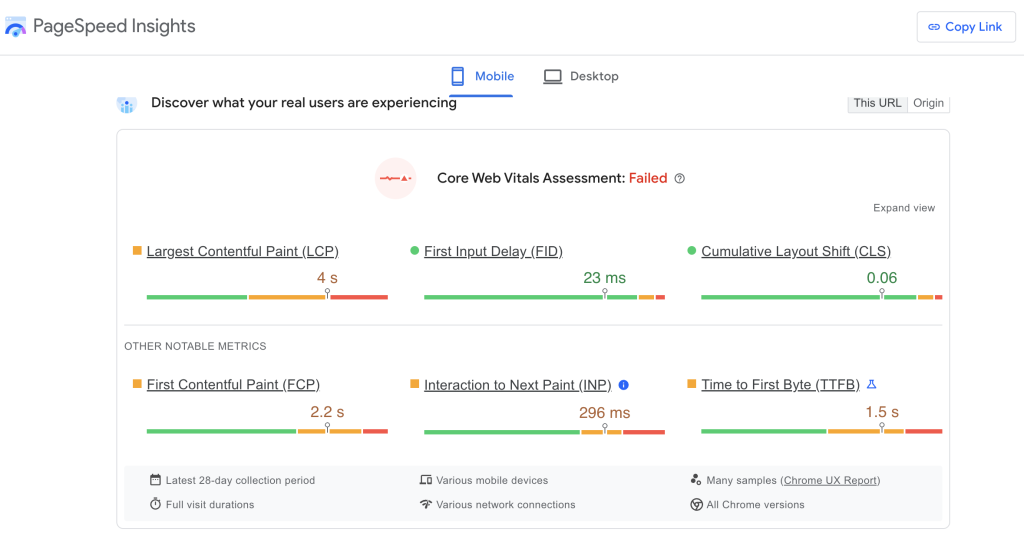Over the past 13+ years working as an SEO Consultant, I’ve seen the same common SEO mistakes made by clients and even other industry ‘experts’ time and time again. Despite the ever-evolving digital landscape, certain SEO mistakes seem to persist, even the savviest of businesses. But here’s the silver lining: recognising these common SEO mistakes is the first step toward avoiding them in the future.
As we journey through this discussion, I’ll not only shed light on these familiar SEO missteps but also provide insights into how you can avoid these mistakes and supercharge your SEO strategy.
WHAT ARE THE 6 COMMON SEO MISTAKES USERS MAKE?
1. Failing to Do Keyword Research:
Many website owners rush into creating content without doing proper keyword research. This often results in targeting keywords with high competition or search volume that is too low, making it challenging to rank and drive organic traffic.
SEO Expert Tip: Prioritise keyword research using tools like Google Keyword Planner or SEMrush. Identify high-value keywords relevant to your niche and audience. Craft your content around these SEO keywords to enhance your chances of ranking well. Read my SEO Keyword Research Guide for more keyword research tips!
2. Getting Low-Quality (or No) Backlinks:
As an SEO Consultant, one of the common mistakes I see is website owners failing to recognise that backlinks still have an important place in a SEO strategy. Attempting to boost SEO with low-quality backlinks from spammy or irrelevant websites can lead to Google penalties and a poor user experience.
SEO Expert Tip: Find your competitors backlinks by using scraping tools such as SEMRush. Reach out to these websites to see if there’s an opportunity to get a backlink. Engage in guest posting with reputable sites in your industry and create shareable content. Avoid link farms or paid link content at all costs.

3. Missing a Clear Website Hierarchy and Linking Structure:
A disorganised website structure with unclear navigation makes it challenging for both users and search engines to find and index content.
SEO Expert Tip: Develop a logical website hierarchy with clear URL categories and subcategories (for example, /services/seo-consultant). Ensure each page has an internal link going to it and use descriptive anchor text. Consider using a reverse silo internal linking structure when relevant.
4. Google Cannot Crawl or Index a Website:
When conducting SEO audits, a common problem I come across is that search engine crawlers can’t access and index website pages properly. Surprisingly, many site owners aren’t even aware of this issue, and they wonder why those pages get so little organic traffic.
Blocking search engine crawlers from accessing essential parts of your site, like pages or resources, can result in incomplete indexing and a drop in search visibility.
SEO Expert Tip: Regularly check and update your site’s robots.txt file to ensure search engines can access critical content. Ensure your robots.txt file does not include the below code:
User-agent: GooglebotDisallow: /
User-agent: *Disallow: /
5. Having a Slow Site:
Slow-loading websites frustrate users and search engines. Neglecting site speed optimisation can lead to high bounce rates and lost traffic.
SEO Expert Tip: Invest in optimising site speed by compressing images, leveraging browser caching, and minimising code and scripts. Use tools like Google PageSpeed Insights to identify performance issues and address them promptly.

6. Not Having an Ongoing SEO Strategy:
There’s still a common view that SEO is a one-time task job, rather than an ongoing process. This mindset can lead to a stagnation in search rankings and will often see organic traffic drop over time.
SEO Expert Tip: Develop a comprehensive, ongoing SEO strategy that includes regular content updates, performance monitoring, and adapting to algorithm changes. If you’re feeling overwhelmed by the amount of SEO tasks you need to complete, check out my 7 steps to prioritising SEO tasks (plus a free SEO resource to help) which will help you turn a full SEO strategy into bite size pieces.
If you’re ready to take your SEO strategy to the next level or if you’ve realised the value of avoiding these common pitfalls, don’t hesitate to reach out to me. I’m here to help you navigate the intricacies of SEO, so you make fewer SEO mistakes and progress your SEO strategy faster.


